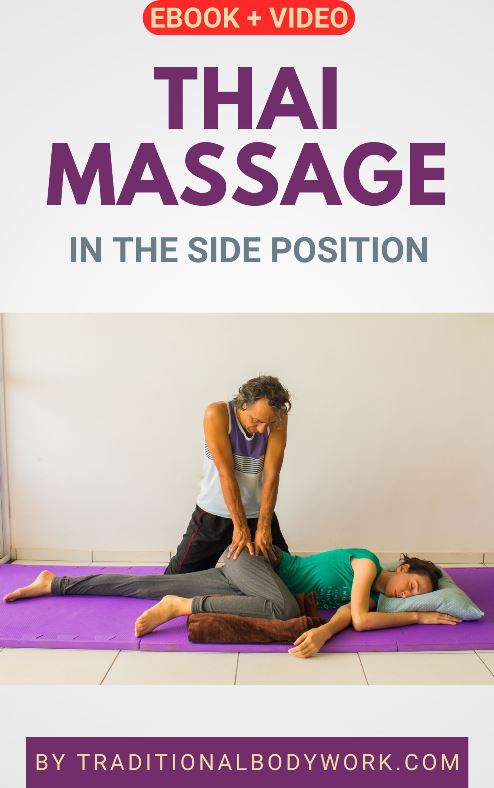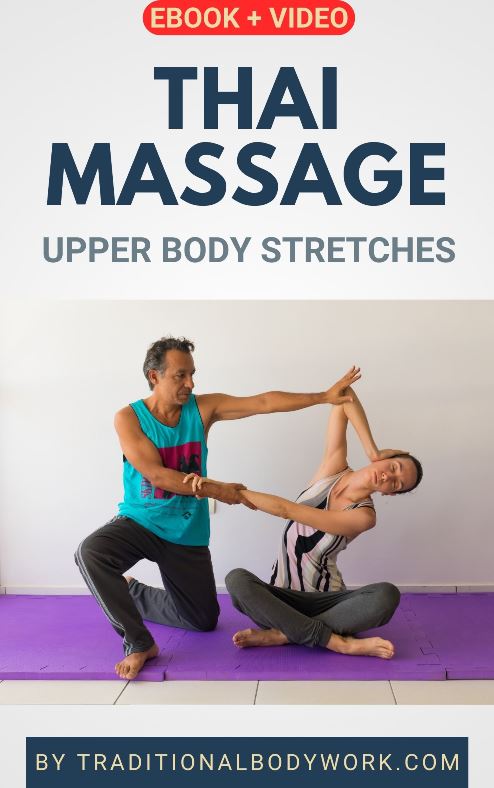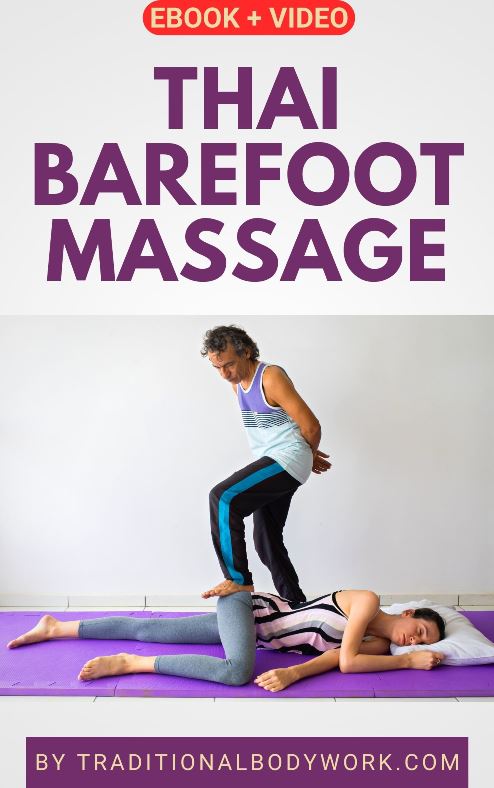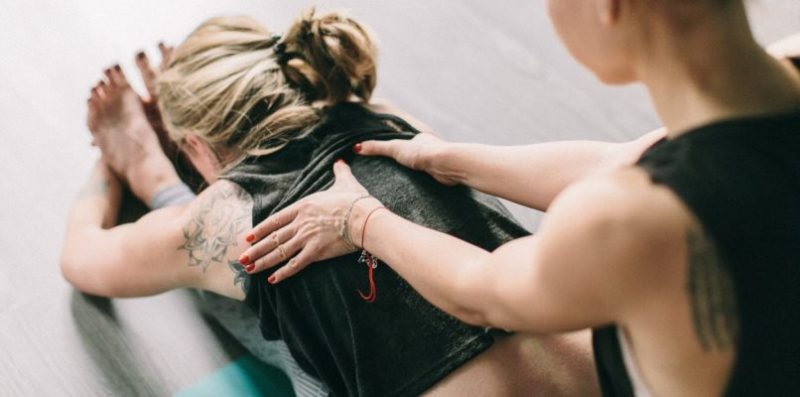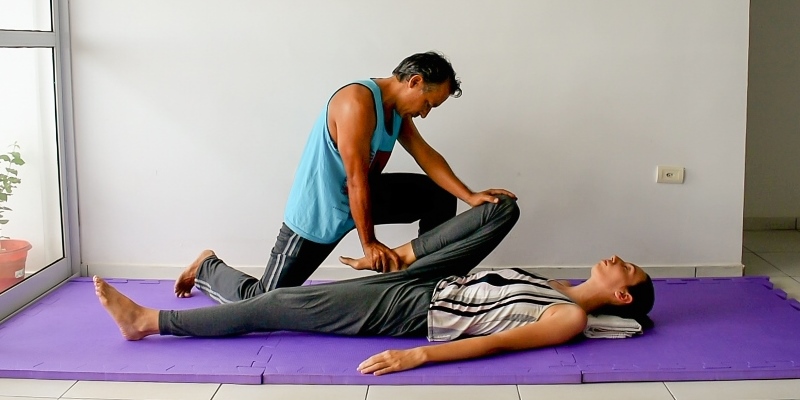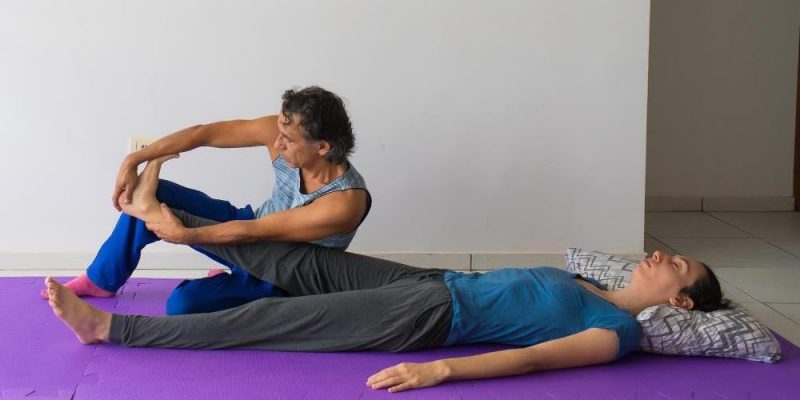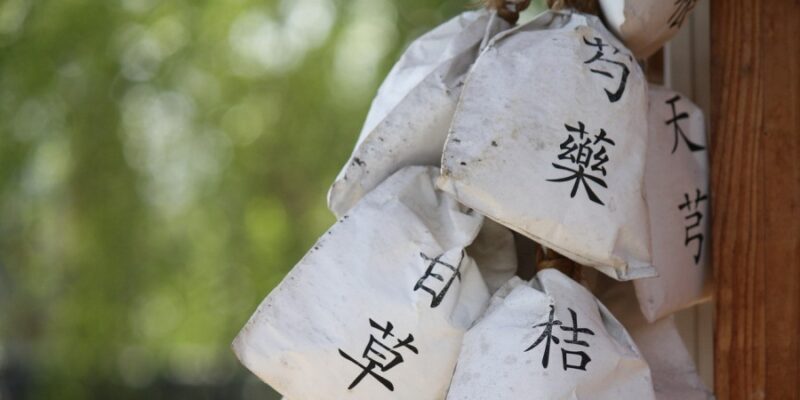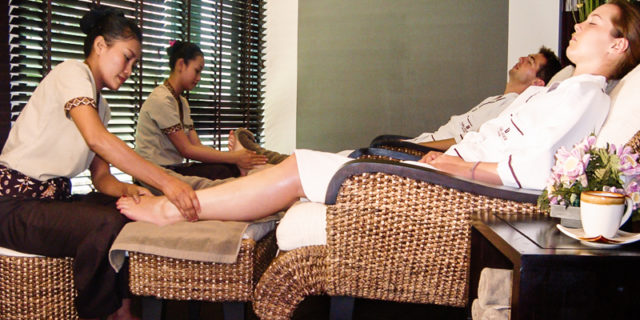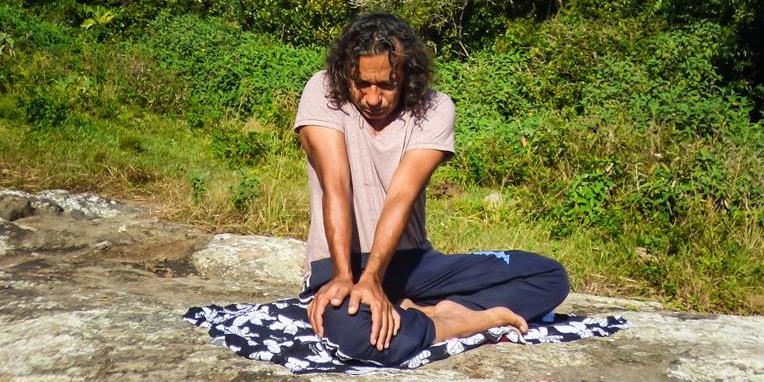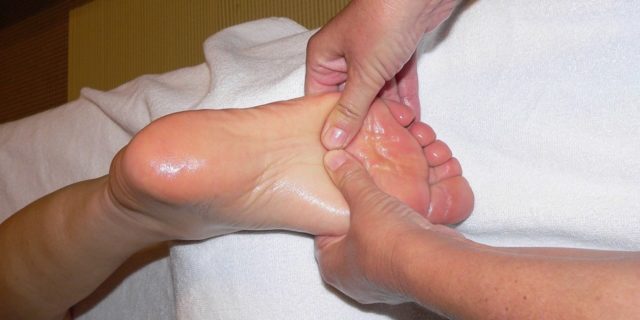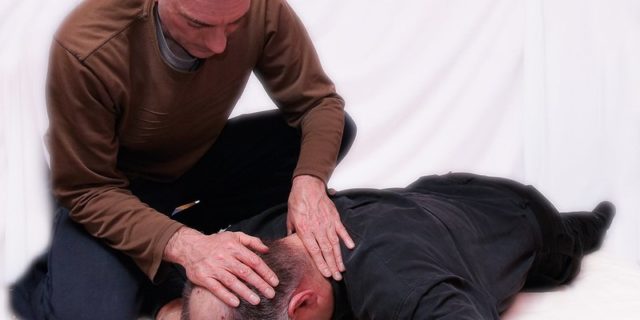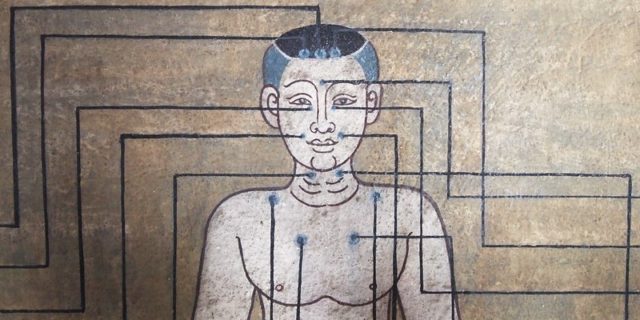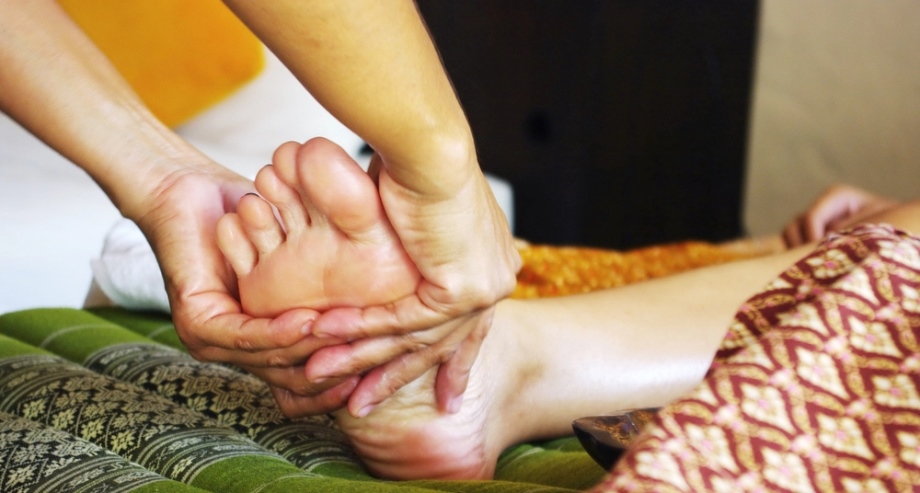
Thai Foot Massage, in Thailand called Nuad Tao, is a combination of massage and reflexology and is about using massage to open up the Thai Sip Sen Energy Channels, stimulate the flow of Vital Life Energy, while incorporating pressure on so-called reflexology or acupressure points.
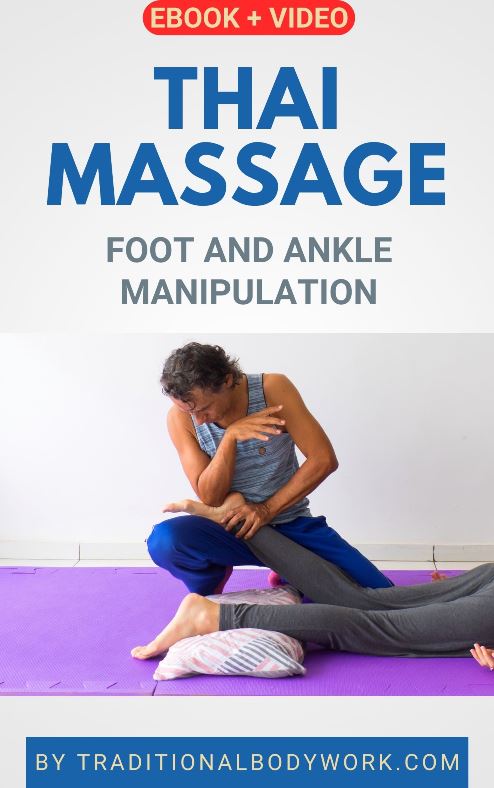
A Thai Foot Massage session can be done with or without using oils or creams. When oil is used there’s more sliding and stroking, without oils you’ll typically find more acupressure manipulations, mobilization, and stretches being applied.
The Thai massage practitioner or therapist may use the thumbs, other fingers, knuckles, elbows, forearms, the knees, feet, and certain tools (often wooden sticks) to work on the feet. The client usually sits on a comfortable soft chair, leaning back, and the practitioner would sit on the floor or on a little stool.
Very often, a Thai Foot Massage treatment is extended to the calves, or even to the entire legs, and at the end of a session often a bit of arm, shoulder, and neck massage is also applied.
Like Traditional Thai Massage, Thai Foot Massage is very popular in Thailand. And surely, after a long day of standing or walking, a session is not only pleasant and good for the feet, but in fact for the whole body. Foot Massage typically incorporates the idea of Reflexology, which means that pressing on certain therapeutic points (acupoints or acupressure points) under, on the sides, or on top of the feet, will benefit the entire body and notably the internal organs.
Thai Foot Massage and Reflexology is a blend of both ancient Indian Ayurvedic and Traditional Chinese Medicine concepts and techniques, and historically it was only practiced at home, by local healers, and in Thai temples (the so-called “Wats”) by Buddhist Monks. Today, it’s offered virtually everywhere in Thailand, on public markets, in massage parlors, on the beaches, and so on, and increasingly in the rest of the world in spas and massage salons.
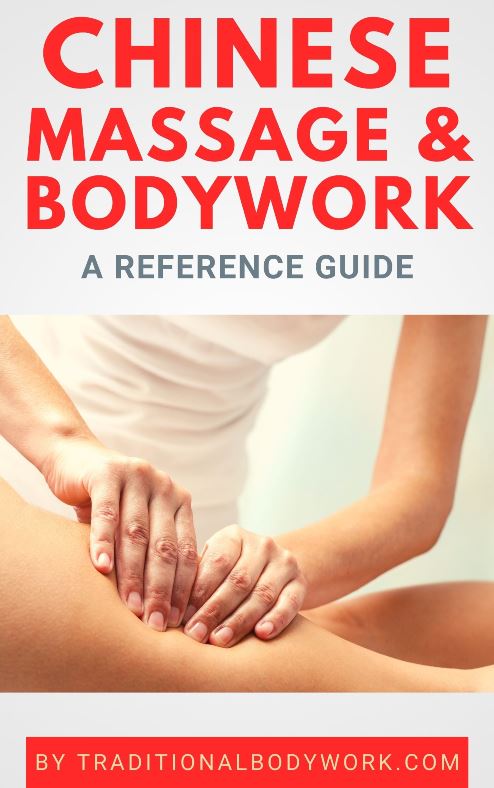
The treatment is strongly influenced by Chinese Reflexology, and you’ll find a number of massage schools in Thailand offering Thai Foot Massage and Reflexology training, while at the same time — without seeing any contradiction — mentioning that it’s based on Chinese Reflexology acupressure points, which is, for instance, the case with the Wat Pho Medical Massage School’s Foot Massage course.
When it comes to “pressure point maps” of the feet, we need to be cautious though. You’ll find a wide variety of different maps and charts available, which often seem to contradict each other. Neither should we compare Thai Foot Reflexology with Western Reflexology, although there are certainly quite some parallels.
The benefits of Thai Foot Massage include improvement of the blood circulatory system, promotion of lymphatic drainage, a boost to the immune system, improved mobility and range of motion, stress and anxiety reduction, better sleep quality, better mood and concentration ability, and a feeling of general wellbeing and calmness.


